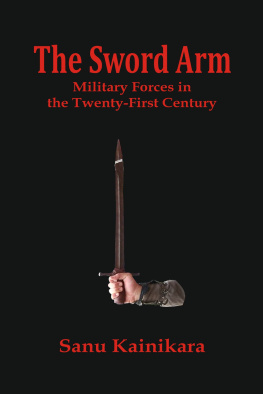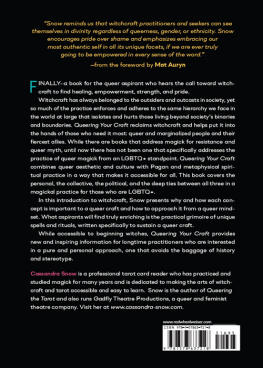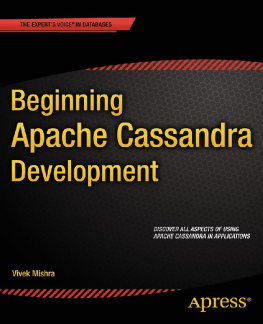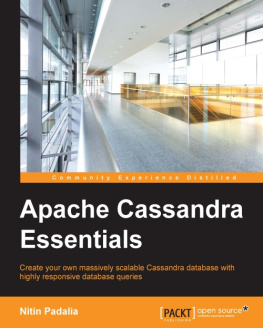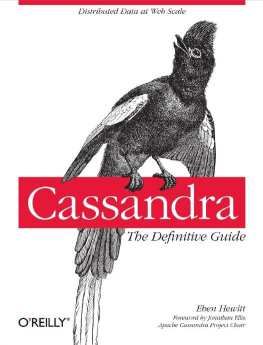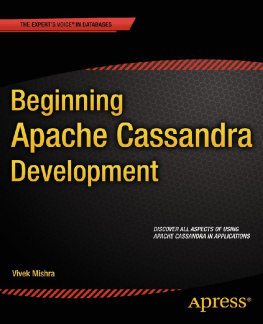The Cassandra Effect
The Cassandra Effect
Future Perceptions on Air Power
Sanu Kainikara
Vij Books India Pvt Ltd
New Delhi (India)
Copyright 2016, Sanu Kainikara
Dr Sanu Kainikara
416, The Ambassador Apartments
2 Grose Street
Deakin, ACT 2600, Australia
First Published in 2016
ISBN : 978-93-85563-81-2 (Hardback)
ISBN : 978-93-85563-82-9 (ebook)
Designed and Setting by
Vij Books India Pvt Ltd
2/19, Ansari Road, Darya Ganj, New Delhi - 110002, India
(www.vijbooks.com)
All rights reserved.
No part of this book may be reproduced, stored in a retrieval system, transmitted or utilized in any form or by any means, electronic, mechanical, photocopying, recording or otherwise, without the prior permission of the copyright owner. Application for such permission should be addressed to the author.
Dedicated to all Air Warriors
Whose implicit belief in flight
Has made possible the improbable
Touching the sky with glory!
BOOKS BY THE SAME AUTHOR
Papers on Air Power
Pathways to Victory
Red Air: Politics in Russian Air Power
Australian Security in the Asian Century
A Fresh Look at Air Power Doctrine
Friends in High Places
Seven Perennial Challenges to Air Forces
The Art of Air Power: Sun Tzu Revisited
At the Critical Juncture
Essays on Air Power
The Bolt from the Blue
The Asian Crucible
Political Musings: Turmoil in the Middle-East
The Indian History Series: From Indus to Independence
Volume I: Prehistory to the Fall of the Mauryas
Volume II: The Classical Age
Volume III: The Disintegration of Empires
Cassandra
Cassandra, also known as Alexandra or Kassandra, was the daughter of King Priam and Queen Hecuba of Troy.
In Greek mythology it is commonly believed that Cassandra was given the power of prophesy by Apollo in order to seduce her. However, when she refused he spat in her mouth cursing her never to be believed. This curse manifested in Cassandra being considered insane, although it is also mentioned that she was merely misunderstood.
Cassandra is an enduring archetype and a modern invocation of the paradoxthe ability to predict the future accurately but not being believed, an inconsistency under which most air power strategists have laboured over the past centuryresults in the main title of this monograph: The Cassandra Effect.
Developers and demonstrators of new technology typically
encounter scepticism or derision, and in aeronautics it was ever thus.
Richard P. Hallion
AUTHORS PREFACE
Men, my brothers, men the workers, ever reaping
something new;
That which they have done but earnest of the things
that they shall do;
For I dipt into the future, far as human eye could see,
Saw the Vision of the world, and all the wonder that
would be;
Saw the heavens fill with commerce, argosies of
magic sails,
Pilots of the purple twilight, dropping down with
costly bales;
Heard the heavens fill with shouting, and there raind
a ghastly dew
From the nations airy navies grappling in the central
blue.
Lord Alfred Tennyson,
Locksley Hall, 1842
I have been a lifelong and passionate advocate of air power. Obviously this comes from my choice of a profession and the opportunities that it provided me to have a grandstand view of what air power could accomplish when employed by professional masters. Further, my gradual evolution from being at the tip of the spear to developing an understanding of air power within the broader military power and national security equation has made me have an increased respect and understanding for the application of air power as an element of national power. However, the very same development has also inculcated a deep-seated pragmatism in all my analysis regarding its capabilities.
I have been one to clearly mention the limitations of air power, particularly in its application within stringent rules of engagements and the challenges that it invariably faces when employed as a force projection capability. At the same time I have also noticed a trend in recent times to dismiss the criticality of air power to the optimised employment of military power, especially by arm-chair strategists who are projected by the media as being experts. The fall-out of such ill-informed discussions has been that the independent status of air forcesthe normal repository of a nations air power capabilitiesis itself being questions as being superfluous to a nations security needs. The tangential path of this logic makes me question the veracity of the thinking process of the people who advocate the abolishing of independent air forces. I honestly believe that these, somewhat heretical, ideas have the capacity to be fancied by less than well-informed strategic decision-makers as resource-saving measures. If such a concept takes hold within the national ethos and is acted upon, that particular nation will have forfeited its ability to protect its sovereignty. In a truly democratic nation popular perception is everything when it comes to understanding its security challenges. Therefore, the means to successfully address these challenges and ensure that national security imperatives are met will also have to take into account the perception of the people. In other words, the debate regarding the crucial part that air power plays in ensuring national security cannot be left to broad and biased debates.
Here I must mention a book published in 2011 by the revered military historian and air power analyst, Martin van Creveld, called The Age of Air Power. The book takes the overall view that although air power was indeed very effective, and at times even critical to the success of military operations in a number of conflicts of the past, its helicon days are over and that it is currently in terminal decline. While Professor Creveld does provide some broad reasoning for his assertion, I found that almost all his arguments against air power could also be very easily put forward coherently as points that indicate the continuing rise of air power as a primary element of national power. Further, the final chapter of the book, Going Down, 1945 - ? does not provide any conclusive evidence to nail down the central argument and hypothesis of the bookthat air power had outlived its usefulness and become redundant as an instrument of power projection. It is paradoxical that almost at the same time that this renowned professor was denigrating air power, NATO was intervening rather successfully in Libya under the aegis of the United Nations, almost exclusively through use of air power. In one fell sweep Operation Unified Protector completely negated the doomsday predictions regarding the demise of air power that had been put forward in the book under discussion.
The continuing success of the employment of air power in the succeeding five years since 2011, when the book was published, has only reasserted my belief that air power is a foundational requirement to build the edifice of national security. I am convinced that this belief will stand the onslaught of disparate challenges. From its very inception more than a century ago as an instrument of military power, visionary thinkers had predicted that the future of military power will always have to embrace the all-encompassing nature of air power. This was despite the naysayers who dismissed the fledgling capability as nothing more than a passing fancy. The thinking seems to have come full circle now, in the early decades of the 21st century. This is indeed surprising since the world is poised to leap into the technological unknown. The views expressed in this monograph has been percolating in my mind ever since I read the negative arguments in





